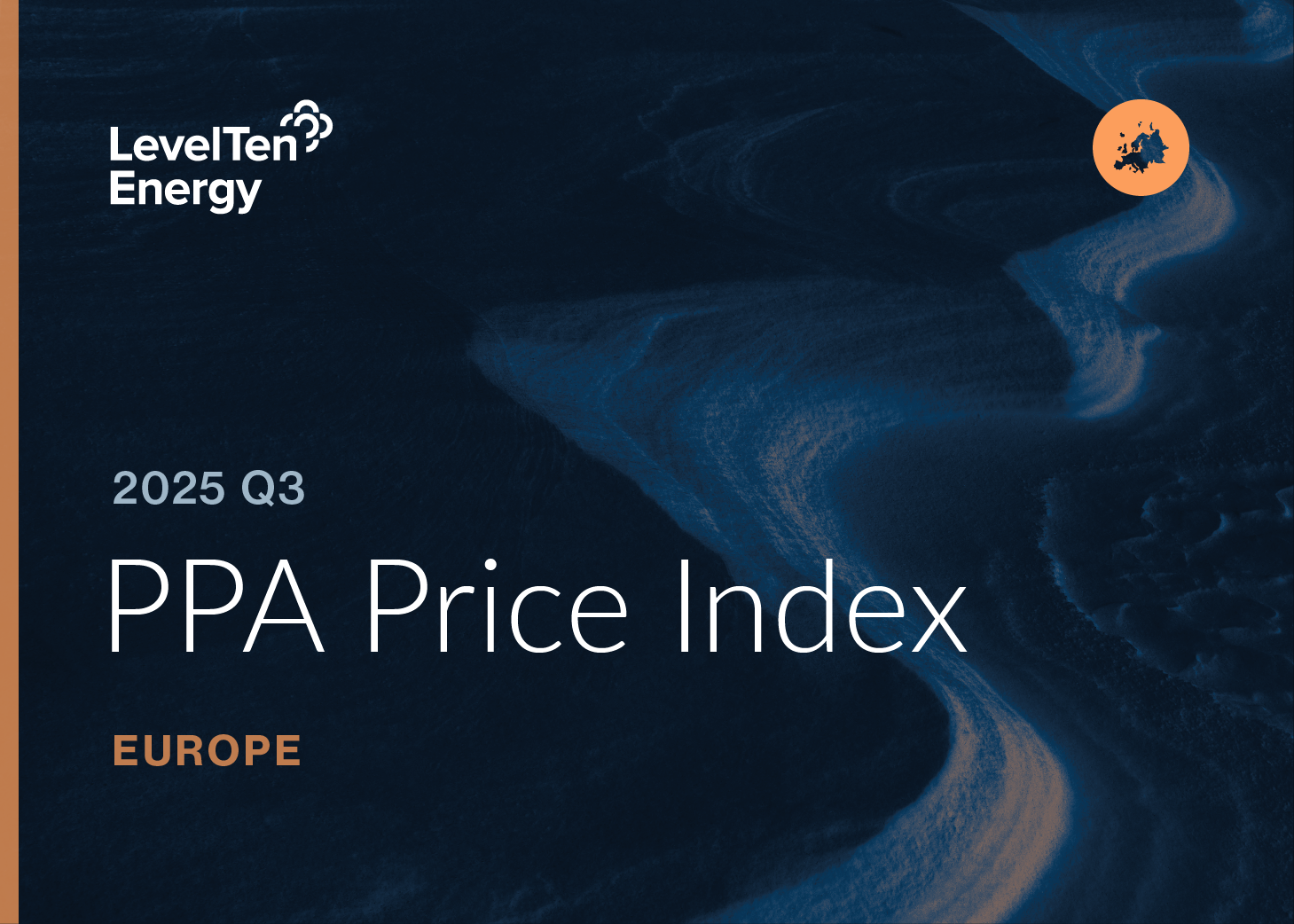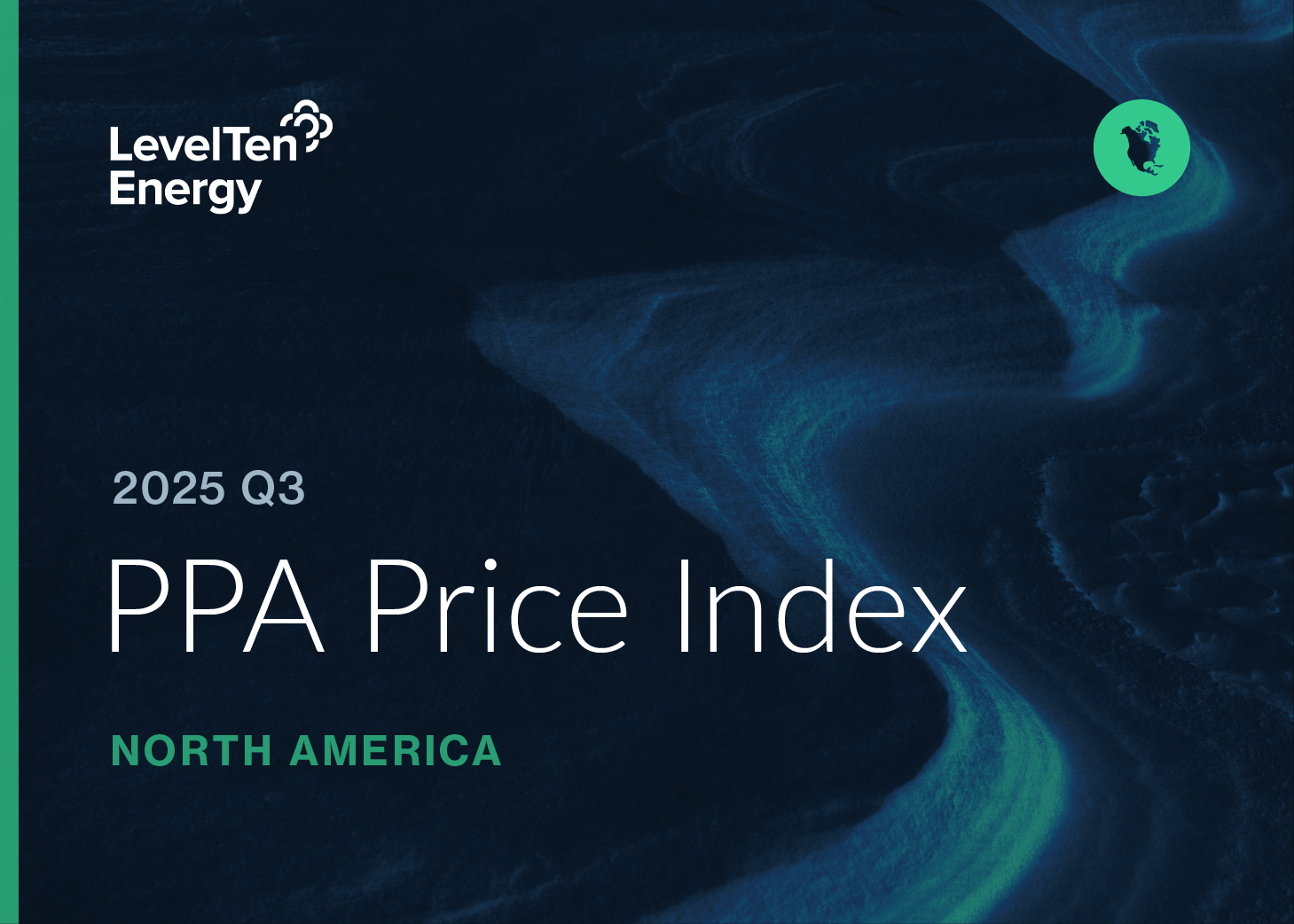Xconomy covered the growth in corporate renewable energy procurement, and how LevelTen can extend power purchasing opportunities to smaller companies.
Here is an excerpt from the article:
Now, a Seattle startup is extending that direct purchasing opportunity to smaller corporations. Many of them covet clean energy for the same economic and environmental reasons as their larger peers. But the smaller companies often don't need all the energy from an entire large-scale solar or wind project, or they may lack the expertise to execute a long-term, bulk power purchase contract.
Bryce Smith, founder and CEO of LevelTen Energy, which just completed the Techstars Seattle startup accelerator, says the company is what you'd get "if Match.com and [mutual fund giant] Vanguard had a baby that really cared about renewable energy."
Smith, who previously co-founded and led Seattle-based solar power project developer OneEnergy Renewables, says the emergence of the corporate customer has been a welcome development for the renewable energy industry, providing a creditworthy power buyer that banks require before they finance project development. But the industry has yet to overcome a series of challenges inherent in the traditional contracting and financing practices for power projects to tap the potential of a broader pool of corporate power buyers, he says.
"It was a great idea," Smith says. "Companies want to buy renewables and developers want to sell renewables, but the challenge was how do you bring them together in a way that actually gets transactions done? That wasn't happening. It was more aspirational."
There are a host of roadblocks: Power purchase agreements are complex and bespoke. Wholesale electricity markets are esoteric. Most corporate power buyers don't have the in-house expertise to shop for power on a project-by-project basis. And even if they did, their companies may not have enough energy demand to consume the output of the big projects that offer the most competitive prices. Then there's the risk inherent in putting all your energy eggs into one basket.
LevelTen's bet is that many of the risks and shortcomings inherent in the old one-to-one model can be overcome by selling the output of many projects to many corporate buyers.
Smith says the corporate market has been primed by tech giants such as Google, Microsoft, and Amazon, which have watched their electricity use grow as they open data centers around the globe to provide cloud computing services.
... Smith says corporations are expected to commit $100 billion to renewable energy by 2025.
To tap into this corporate demand, LevelTen is creating what Smith likens to a "mutual fund" of renewable energy projects. LevelTen is selling custom-sized slices of a portfolio of renewable energy projects it selects with the input of a risk-and-value algorithm based on millions of daily power prices and project attributes. It's first portfolio will include four new wind and solar projects with the capacity to produce 400 megawatts of electricity. Those projects are expected to generate $700 million in electricity revenue over the 15-year life of the portfolio, Smith says.
LevelTen, which raised a seed round in 2016 from Seattle-based investors Founders' Co-op and cleantech focused angel group Element 8, makes money by charging corporate customers a management fee-a small percentage of the cost of the electricity contracted.
LevelTen's model is designed for deregulated electricity markets, which now cover most of the country (though not the Pacific Northwest). Without getting too deep into the workings of wholesale electricity markets, LevelTen is contracting for the renewable attributes of each project in its portfolio. The electrons produced by a given solar panel or wind turbine pour into a regional grid, displacing power generated from other sources.
"What matters is what you cause to be dumped into the grid," Smith says. "There are no brown or green electrons. They're just electrons. If you cause renewable electrons to be dumped onto the grid, you are by definition backing out whatever else comes on at the margin. You're backing fossil-based generation."
To read the full article, visit Xconomy.com.


.png)



